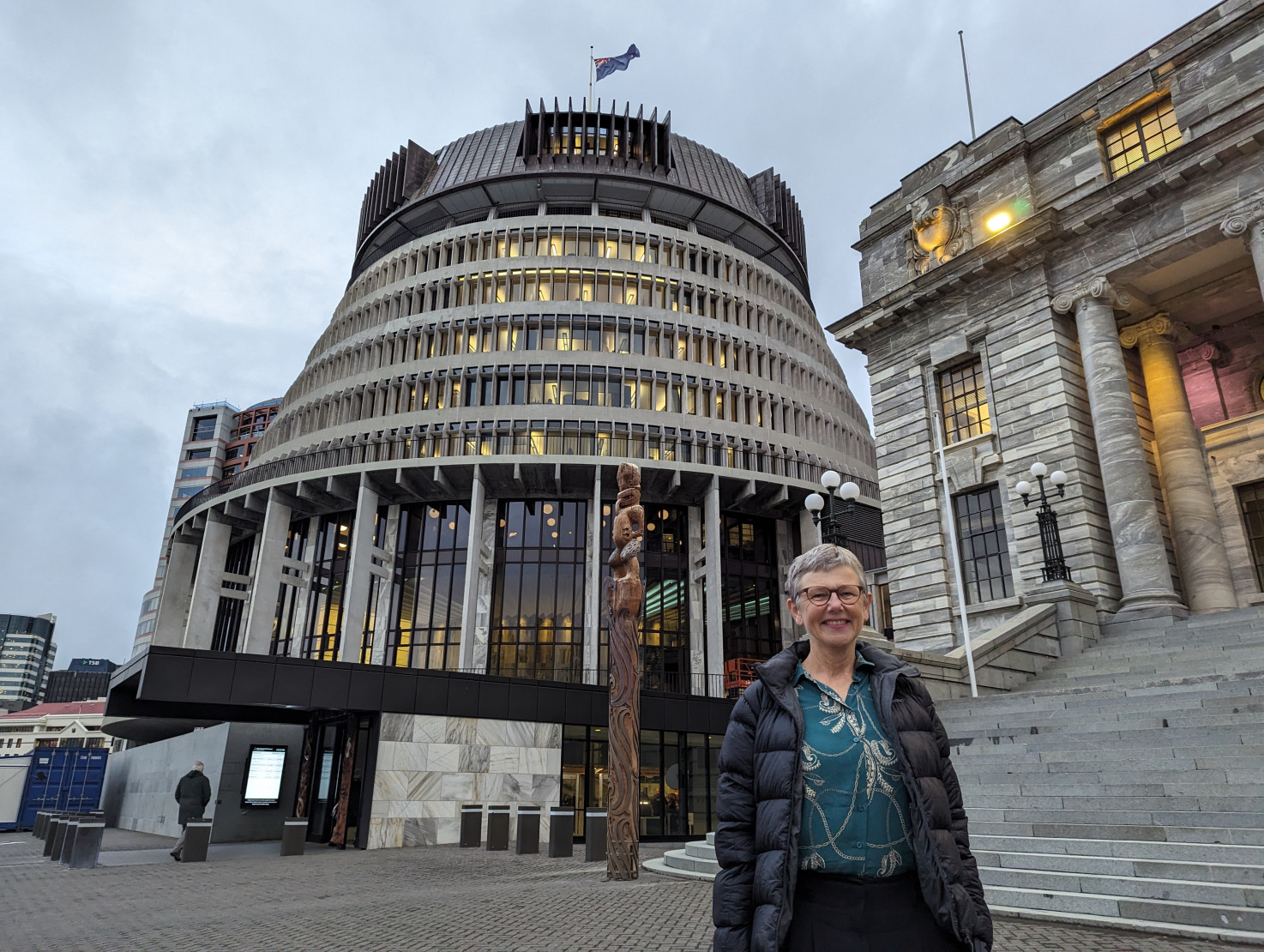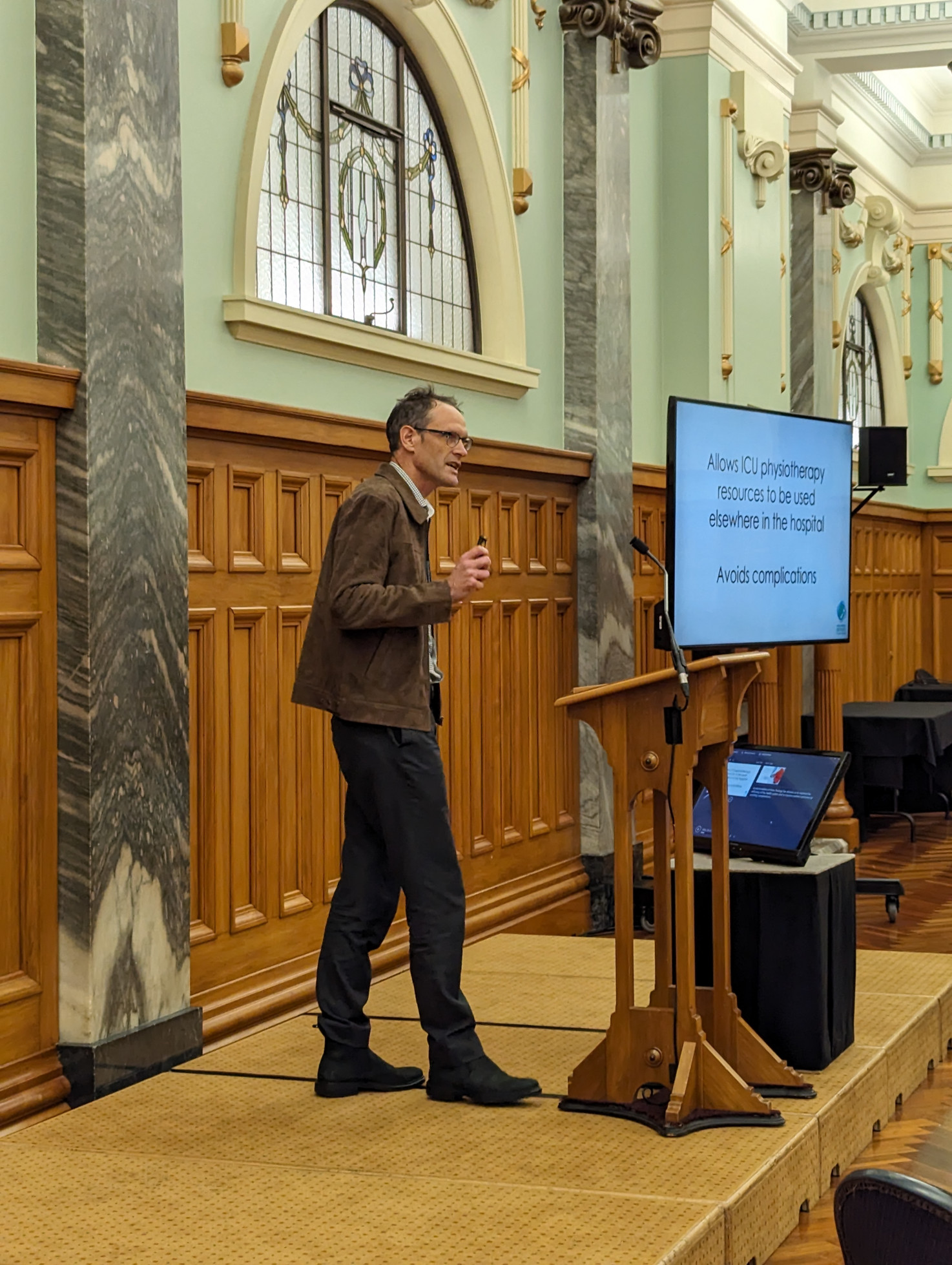Transforming Healthcare with Big Data
The third event in our Speaker’s Science Forum series for 2024 was held on 22 Haratua May at Parliament. Professor Gill Dobbie FRSNZ talked about improving our healthcare with data and AI; and Professor Paul Young described direct benefits to Aotearoa New Zealand resulting from his intensive care research.
 From Information to Innovation: Transforming Healthcare through Data Science
From Information to Innovation: Transforming Healthcare through Data Science
Professor Gillian Dobbie FRSNZ, Waipapa Taumata Rau | University of Auckland
Professor Gillian Dobbie is a computer scientist at Waipapa Taumata Rau, University of Auckland, where she develops AI tools for healthcare. (She is also a Fellow of the Society and currently Chair of the Marsden Fund Council.) During her talk she demonstrated how data-driven solutions can improve the efficiency of our healthcare system, while supporting healthcare professionals and improving the health of all New Zealanders. She did this by describing three projects:
- Project 1: identifying dementia in older patients using routinely collected health data. The model is trained on data of more than 100,000 patients.
- Project 2: forecasting the disease burden of influenza, in order to manage hospital resources. Her team trained a Chat-GPT-like time series machine learning model on data collected in Auckland hospitals.
- Project 3: predicting the severity of acute pancreatitis using a machine learning model to accurately and efficiently triage patients when they present at a hospital.
She also spoke about whether people are comfortable having their healthcare data used for other purposes. Her team found that in a population of people aged 55 years and over, most people surveyed are happy for their data to be used to help make decisions about their own health and in research to help other people in the future.
Professor Dobbie’s take-home message was that AI can and should be used to help improve patient health outcomes and raise the efficiency and effectiveness of healthcare in Aotearoa New Zealand.
 Intensively Caring
Intensively Caring
Professor Paul Young, Medical Research Institute of New Zealand
Professor Paul Young, Deputy Director and lead for ICU research at the Medical Research Institute of New Zealand, spoke about his work using randomised clinical trials in intensive care. He spoke about his 'Top Ten' trials and the returns on investment in this research.
“The Health Research Council of New Zealand has invested a total of $16M in intensive care research that has been completed in the past 15 years. The impact of this research includes:
- 70 fewer critically ill adults die and 49 fewer require acute kidney dialysis each year in New Zealand following implementation of our intravenous crystalloid fluid research; the direct cost savings of avoiding such dialysis episodes is $60,000 saved per year.
- 360 fewer adults develop acute kidney injury and 290 fewer patients develop surgical site infection after major surgery as a result of implementation of liberal fluid therapy each year in New Zealand; cost savings to the healthcare system from avoiding these surgical site infections are $6M saved per year in New Zealand.
- 35 fewer heart surgery patients have a heart attack, stroke, kidney failure or die each year in New Zealand as a result of implementation of our research on restrictive transfusion; the direct healthcare savings from blood products alone is $2M saved per year in New Zealand.
- 20 fewer patients die per year in New Zealand following major trauma as a result of implementation of pre-hospital tranexamic acid therapy to prevent exsanguination in major trauma; this therapy costs $5.95 per patient.
- 221 fewer patients require kidney dialysis in ICU each year as result of research demonstrating that intravenous starch solutions are toxic to the kidneys. The cost saving to the New Zealand health system from this research is $2.5M saved per year. Starch solutions were removed from sale in New Zealand as a result of advice provided to Medsafe following this research.
- 46 lives saved each year in New Zealand by not using vitamin C to treat septic shock at a saving of $1.2M each year (direct cost savings from not paying for vitamin C).
- $3.25M saved per year in New Zealand by de-implementation of therapeutic hypothermia in post cardiac arrest patients after research showed that this therapy increased ICU support requirements and did not improve patient outcomes.
- 27 fewer patients each year in New Zealand end up on permanent dialysis as a result of implementation of delayed initiation of dialysis in acute kidney injury. The direct cost savings to the New Zealand healthcare system of these patients avoiding dialysis are $3.34M saved per year.
- $14.5M saved in ICU costs per year in New Zealand as a result of the use of hydrocortisone to hasten recovery and decrease ICU support requirements in patients with septic shock.
- $20M saved per year in healthcare costs associated with implementing the findings of the DECRA trial and not performing early decompressive craniectomy for diffuse severe brain injury (the DECRA trial showed that decompressive craniectomy did not affect mortality rates in severe brain trauma but increased the number of highly dependent survivors, each of which had estimated lifetime care costs of $1M).
- Establishing the effectiveness of a range of therapies for COVID-19 and likely saving over a million lives around the world during the pandemic.
The ongoing savings to the NZ health system from this research are $51.59 million per year.
Every $1 invested returns $52 in direct savings per year (and continues to generate these savings on an ongoing basis without further investment).”
